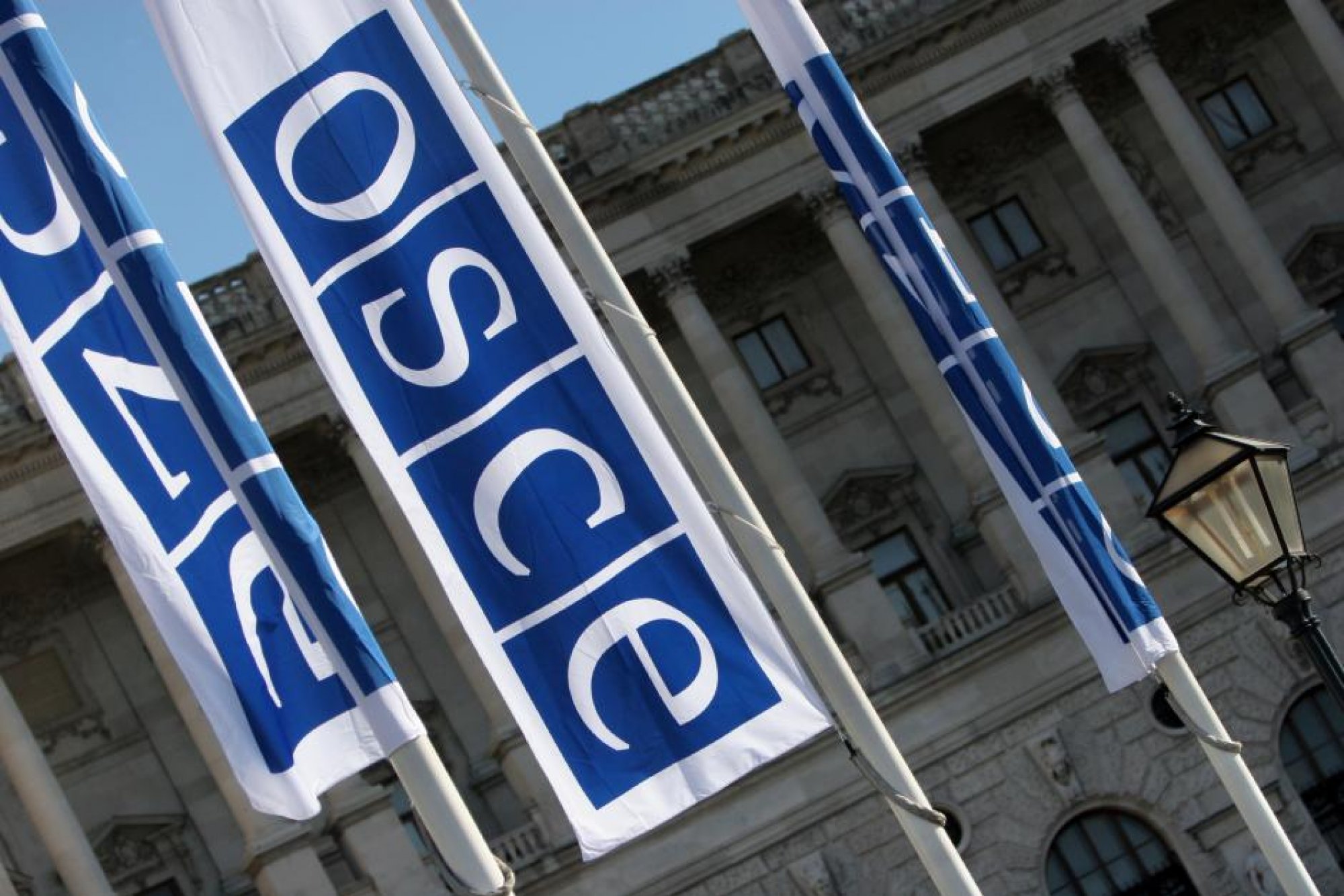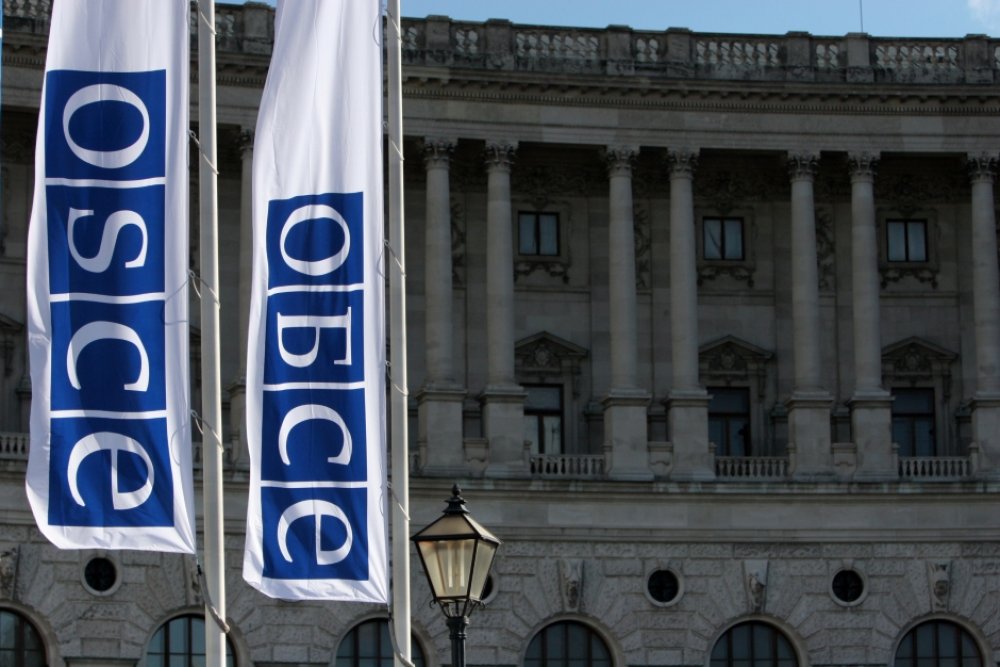OSCE/Mikhail Evstafiev

Exclusive: Eleven candidates considered for top OSCE posts
According to internal documents obtained by SHR Monitor, eleven candidates will compete for the OSCE’s four top posts.
September 18 marked the official deadline to nominate candidates for the leadership positions, vacant since July after participating States failed to reach consensus on their extension. The spots include the OSCE Secretary General, the Director of the Office for Democratic Institutions and Human Rights (ODIHR), the High Commissioner on National Minorities (HCNM) and the Representative on Freedom of the Media (RFoM).
The nominees were announced in four different letters sent from the Albanian OSCE Chairmanship on September 19 to all OSCE permanent missions.
Candidates for OSCE Secretary General:
– Cristian Diaconescu, Romania, professor of international law. Former foreign minister and minister of justice.
– Helga Maria Schmid, Germany, secretary general of the European External Action Service (EEAS). Former EEAS deputy secretary general for political affairs.
Candidates for ODIHR Director:
– Matteo Mecacci, Italy, president of the advocacy NGO International Campaign for Tibet. Former member of the Italian parliament.
– Jose Maria Ridao, Spain, deputy director of Spanish daily newspaper El País. Former Spanish diplomat.
Candidates for HCNM:
– Kairat Abdrakhmanov, Kazakhstan, Ambassador of Kazakhstan to Sweden. Former foreign minister and Chairperson of the OSCE Permanent Council during Kazakhstan’s 2010 OSCE Chairmanship.
– Rita Izsák-Ndiaye, Hungary, senior human rights consultant at the Office of the UN Secretary General’s Envoy on Youth. Former UN Special Rapporteur for Minority Issues.
Candidates for RFoM:
– Ditmir Bushati, Albania, special envoy of the Albanian OSCE Chairperson-in-Office and member of Parliament. Former minister for foreign affairs.
– Maja Cappello, Italy, head of the Department for Legal Information at the European Audiovisual Observatory and member of the High Council for Cinema and Audiovisual at the Italian Ministry of Culture. Former deputy director of the Audiovisual Media Services Directorate at the Italian Communications Authority.
– Patrick Penninckx, Belgium, head of Information Society Department at the Council of Europe. Former special advisor to the Secretary General and Deputy Secretary General at the Council of Europe, and former executive secretary of the Pompidou Group.
– Maria Teresa Ribeiro, Portugal, secretary of state of foreign affairs and cooperation. Former president of the Institute for the Media.
– Dimitrij Rupel, Slovenia, rector of the New University in Ljubljana. Former foreign minister and former OSCE Chairperson-in-Office in 2005.
Difficult negotiation process ahead
Unlike in other international organizations, such as the International Atomic Energy Agency, the selection process for OSCE’s top posts occurs behind closed doors. Candidate hearings typically take place in Vienna and are organized by the Chairmanship (currently Albania). The Chairmanship plays the role of an honest broker – meaning someone who is considered neutral enough to help create consensus – during the 57-state consultation process.
Judging by past experience — notably in 2017, when the previous leadership deal was reached — the four posts will likely be negotiated as part of a package. This makes the process more complex, since all four positions must be agreed upon together, and leaves it prone to deadlock.
Complicating matters even further, the appointments can only be made by consensus among all 57 States. That means any one member can unilaterally break down an entire agreement if it’s tempted to press for concessions elsewhere, or to push through its own candidate.
One way of avoiding such a scenario would be to first separately agree on candidates who receive the most support. But that strategy would likely be resisted by States that consider the package-style negotiation an opportunity to push for their interests.
An eclectic field
The field of candidates is comprised of nine people from EU countries — despite the fact that half the OSCE’s participating States are not part of the bloc. This makes it difficult for the Chairmanship to address demands by participating States, such as for example Russia or States in the Caucasus or Central Asia (there is one strong candidate from Kazakhstan), which argue the package should be geographically balanced.
One way of addressing this problem would be for the countries that make this point to put forward more of their own candidates. Indeed, it cannot be excluded that if negotiations reach a deadlock, more candidates will be nominated in the course of the next few months.
Potentially revealing will be how the Chairmanship will manage to get on board countries such as Turkey or Tajikistan, which had voiced considerable criticism against ODIHR in the past. They had criticized ODIHR’s practice of inviting NGO representatives, that are considered “members of terrorist groups” in their own countries, to its human dimension meetings.
Gender equality is also an increasingly relevant criterion for top OSCE posts. This time, four of the eleven candidates are women, including strong contenders for Secretary General and RFoM.
In the latter case, it is worth noting that an Albanian has been nominated for the spot. To avoid any criticism of bias, and to gauge opinion from participating States, the Chair will likely follow prior practice of engaging a group of trusted ambassadors (usually some of the longest-serving) to assist in the selection process. The other two members of the Troika (Slovakia and Sweden) are also usually closely involved in the consultation process.
Tight schedule
The goal of the Albanian Chairmanship is to agree on all four posts at the OSCE Ministerial Council meeting in Tirana in early December. The previous leadership package, reached under the 2017 Austrian Chairmanship, took several months to negotiate and required an informal gathering of foreign ministers to break the deadlock.
The Albanian Chairmanship has already spent a considerable amount of time and effort during its tenure dealing with personnel issues. One would hope — for their sake and that of the Organization — that this turbulent year will end with new leadership. The OSCE’s effectiveness during a particularly critical moment depends on it.
Comments
One response to “Exclusive: Eleven candidates considered for top OSCE posts”
Leave a Reply
* Your email address will not be published



[…] meanwhile the clock is ticking for the selection process for OSCE’s top jobs, with eleven names apparently under consideration for the four posts. The behind-closed-doors discussions are likely to be complex and divisive, not least because […]